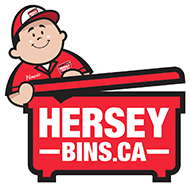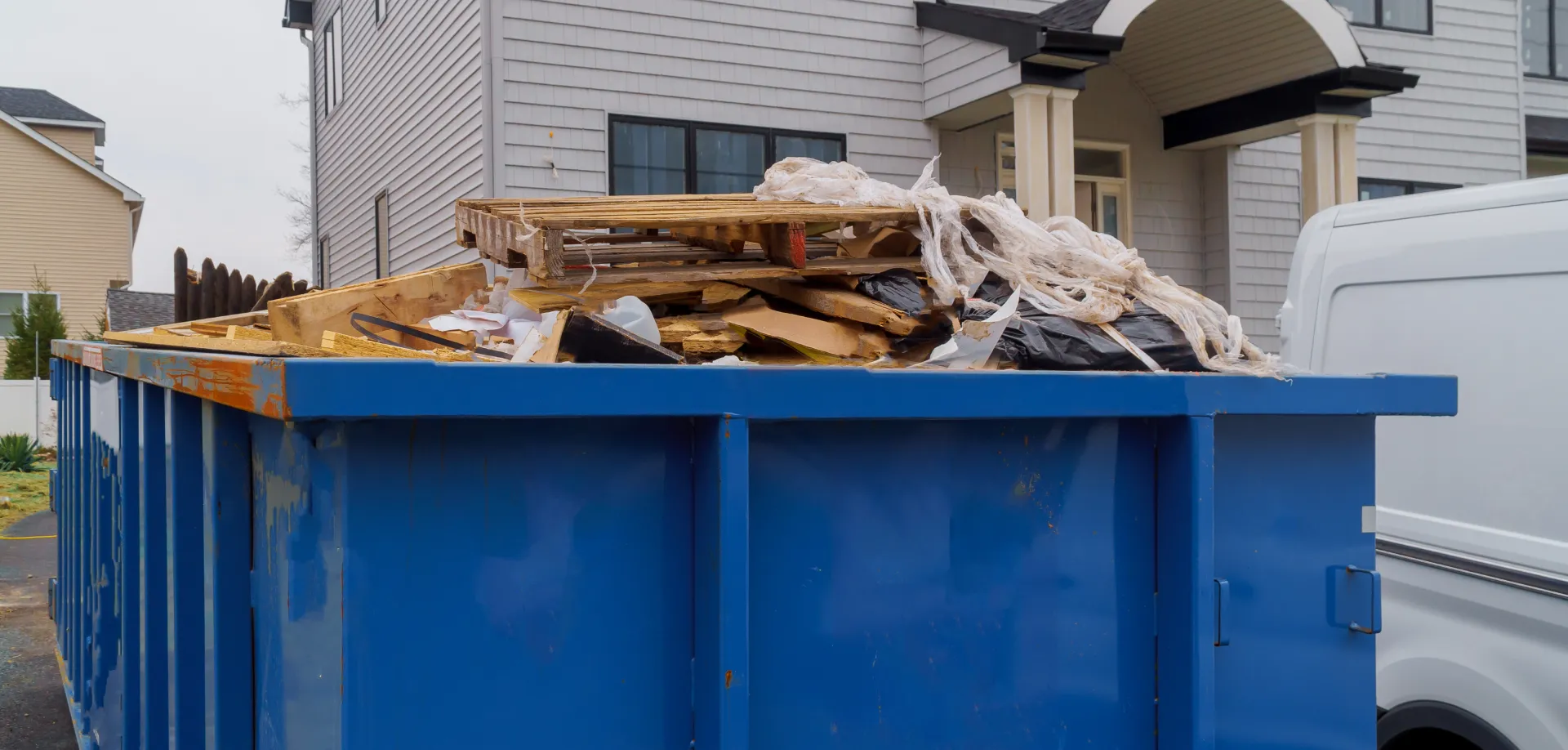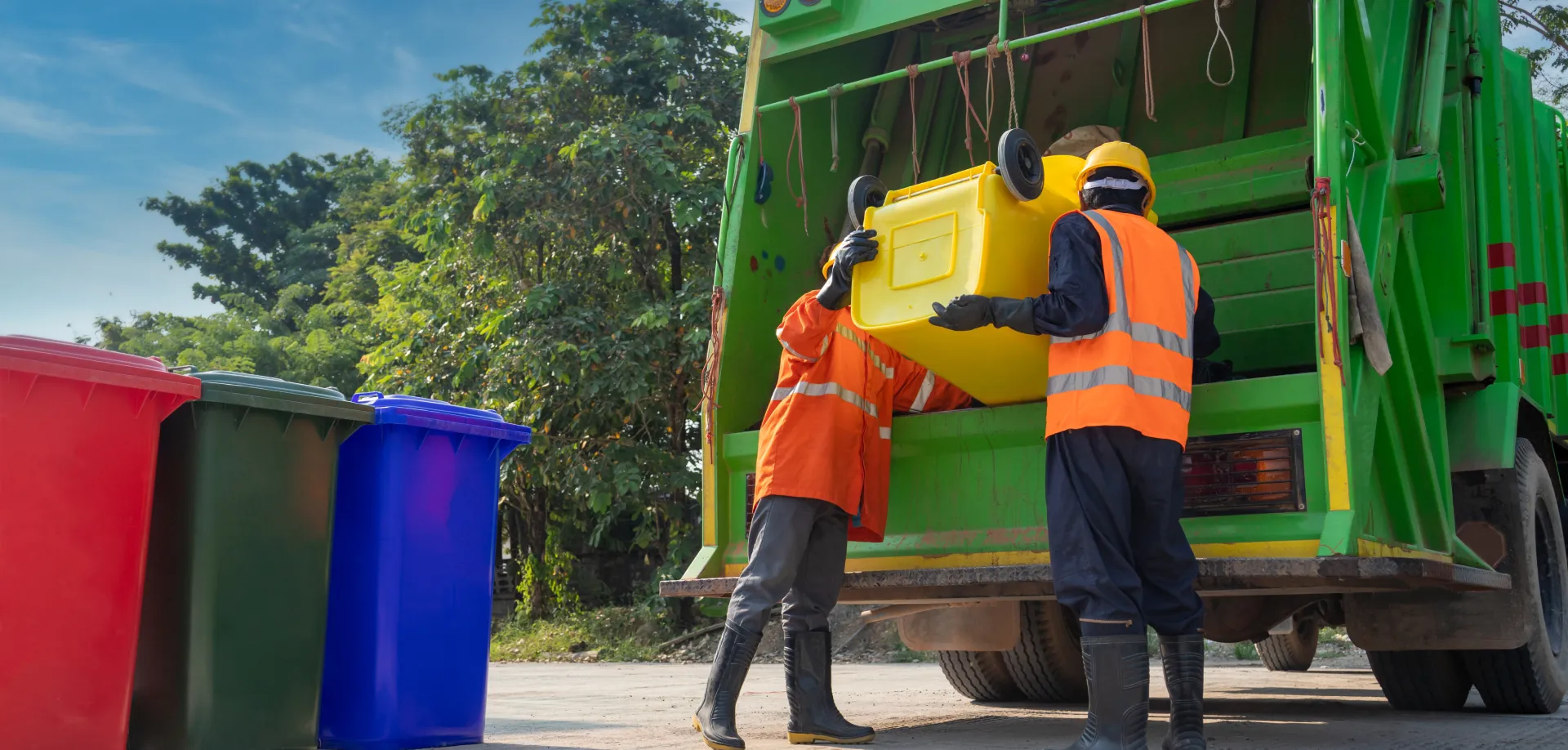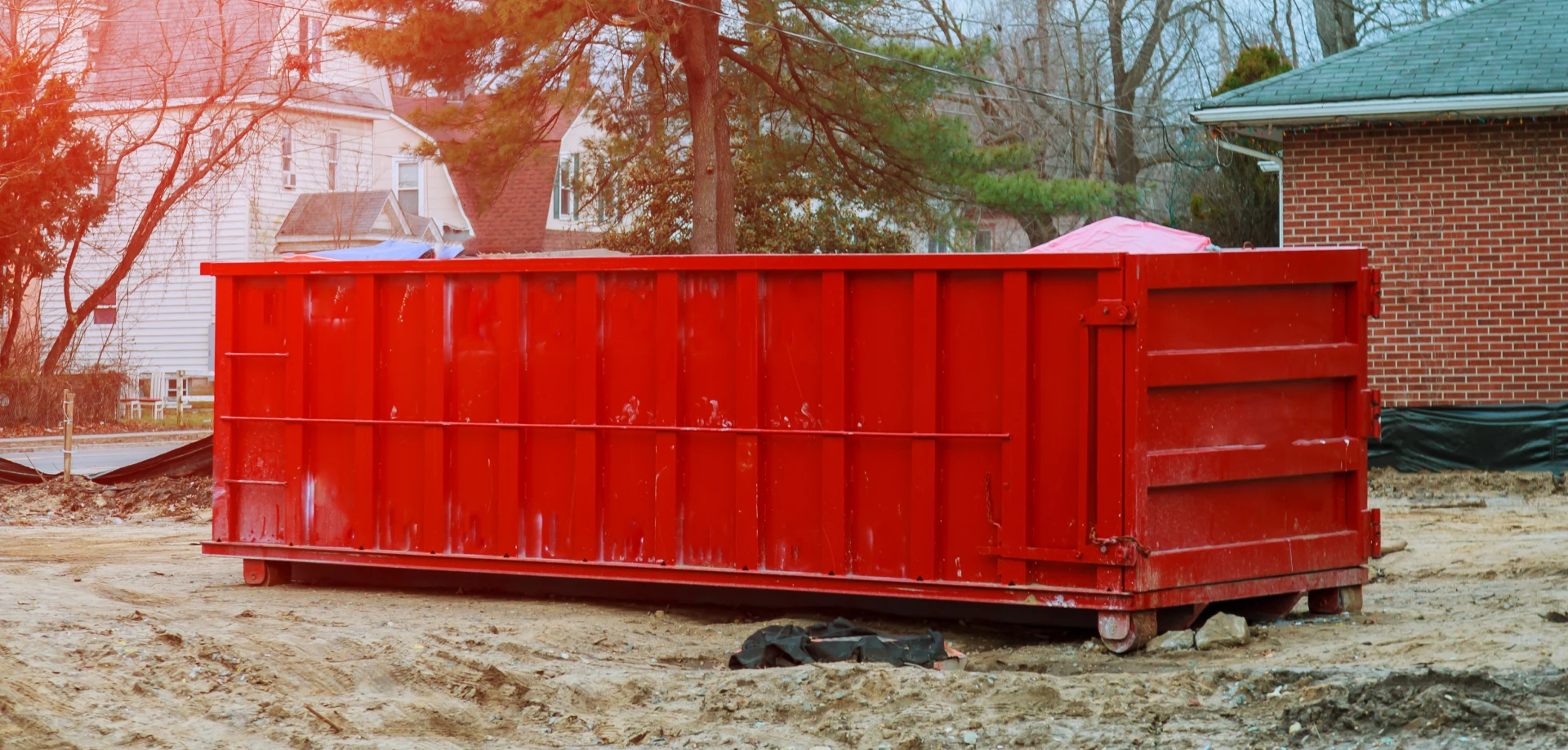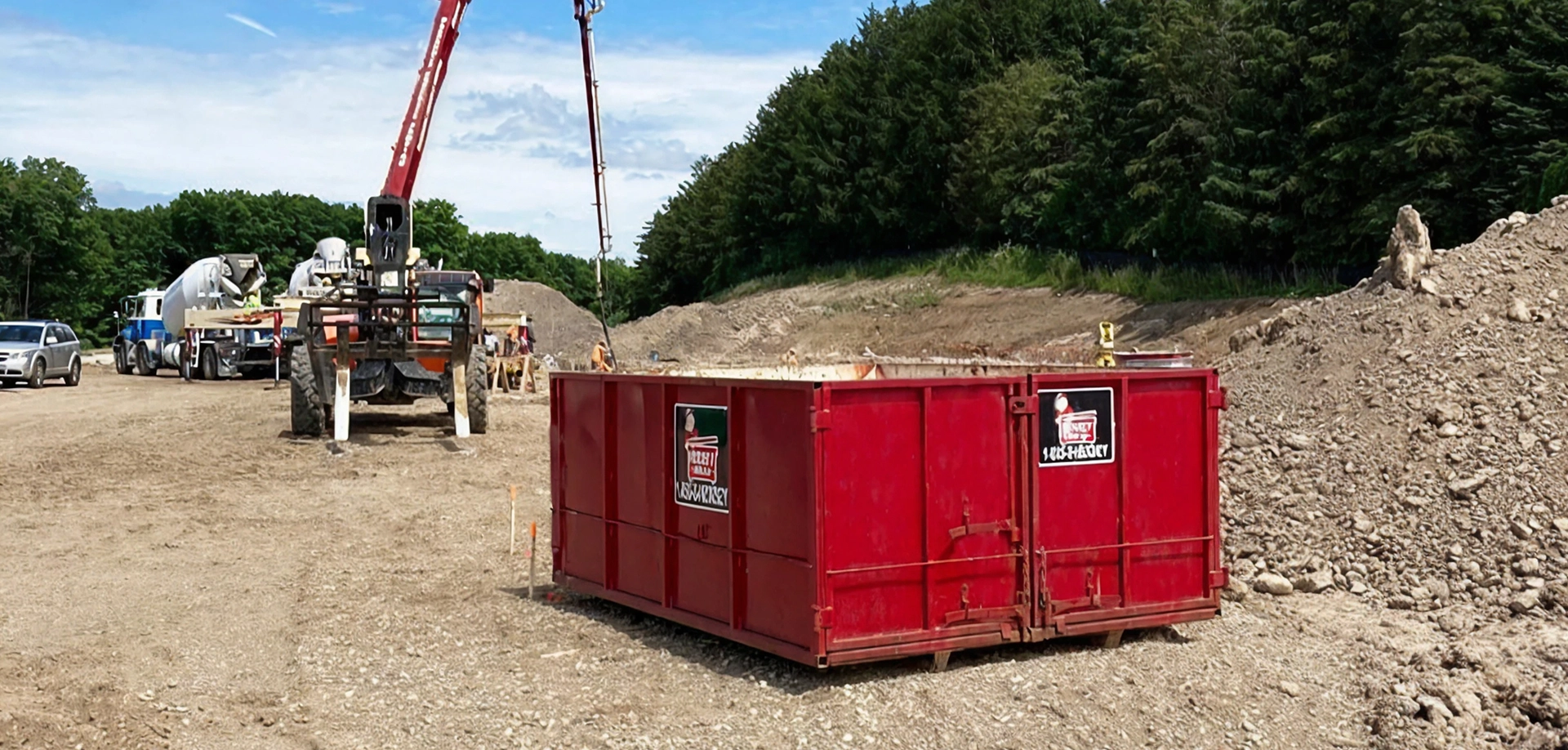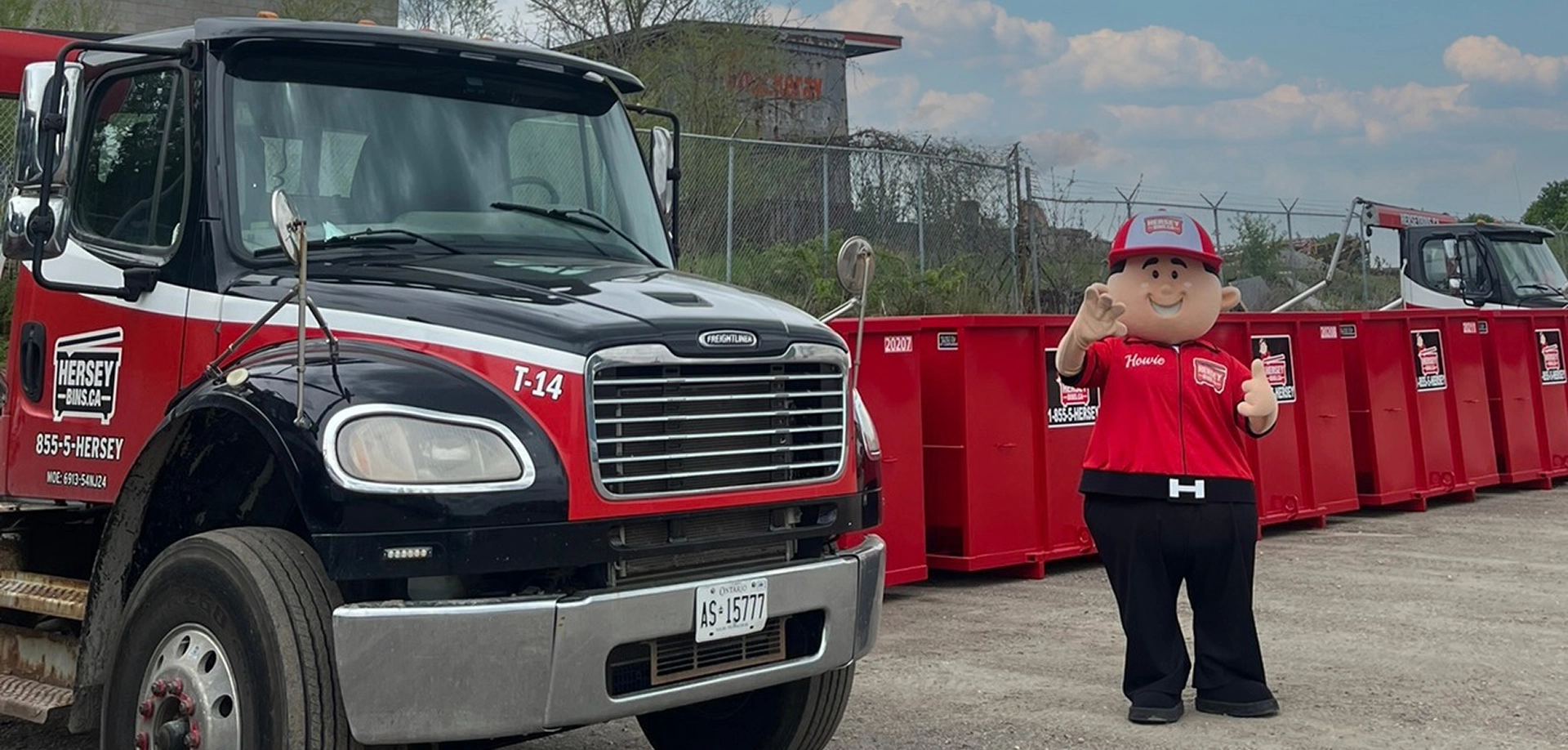Running a business or overseeing a construction site can generate a significant amount of waste as a part of daily operations. How that waste is managed, however, can have a significant impact on your finances, operational efficiency, and overall reputation.
Implementing a waste management plan allows businesses to reduce disposal costs, stay in line with environmental regulations, and adopt more sustainable practices that reflect positively on the company.
For businesses in Southwestern Ontario, taking a thoughtful, organized approach to waste management is increasingly important. Whether you run a retail store, operate a restaurant, manage a warehouse, or supervise construction projects, having a well-structured plan ensures cleaner, safer operations while supporting a professional and responsible image.
This guide highlights the many advantages of implementing a waste management plan, providing practical advice on streamlining waste disposal, increasing recycling and composting efforts, and improving your overall environmental performance.
By following these steps, businesses can work more efficiently, demonstrate commitment to sustainability, and maintain a positive standing with clients and the community.
What Is a Waste Management Plan?
A waste management plan is a carefully designed strategy that details how a business or project manages, reduces, recycles, and disposes of its waste. It goes beyond simply deciding where garbage should go. Instead, you are making operations more efficient, saving money, and showing a genuine commitment to environmental responsibility.
The main goals of a waste management plan include lowering disposal costs, improving workflow efficiency, supporting sustainability, enhancing brand reputation, and ensuring compliance with local and provincial regulations.
These plans are adaptable to all types of industries. For example, a retail business might concentrate on recycling packaging materials and office waste, while a construction company may require a detailed construction waste management plan to manage debris such as concrete, drywall, metal, and wood in an organized and efficient way.
By integrating a well-thought-out plan into everyday operations, businesses can reduce their environmental impact, keep waste handling predictable, and make the entire process more cost-effective and manageable.
Core Components of Effective Waste Management Plans
Every successful waste management plan is built around several key components that work together to create consistent, measurable, and long-lasting results.
Each element plays a crucial role in ensuring that waste is handled efficiently, costs are controlled, and environmental goals are met.
- Waste audit and baseline: Start by understanding the waste your business generates. This means identifying the types of materials being thrown away, measuring how much is produced, and tracking how often waste is collected. Conducting a thorough audit provides a clear picture of your starting point, helping you make informed decisions about bin sizes, pickup frequency, and recycling strategies.
- Clear goals: Setting specific objectives gives your waste management plan direction and purpose. These goals could include reducing disposal fees, increasing the amount of recyclable material diverted from landfills, or meeting local and provincial regulatory requirements. Having clear targets makes it easier to measure success and communicate expectations to staff and stakeholders.
- Sorting procedures and bin placement: Proper sorting is essential to effective waste management. Determine how different types of waste, such as recyclables, organics, and general garbage, will be separated. Consider where bins will be located to make disposal convenient while keeping work areas safe and uncluttered. Well-placed bins encourage correct disposal and reduce the risk of contamination.
- Vendor or hauler schedule and service levels: A reliable collection schedule is vital to maintaining smooth operations. Decide how often bins need to be emptied or swapped, and coordinate with your waste service provider to ensure that pickups are timely and consistent. This prevents overflow, keeps the site tidy, and supports efficient waste handling.
- Staff training and signage: Educating employees on proper disposal practices is a key part of any waste management plan. Clear signage and regular training help staff understand which materials belong in each bin, how to handle hazardous items, and why compliance matters. Ongoing guidance reinforces good habits and reduces errors that could lead to fines or contamination.
- Tracking and continuous improvement: Finally, monitor your waste management practices on a regular basis. Track tonnage, recycling rates, and pickup frequency to see how well the plan is performing. Use this data to identify opportunities for improvement, adjust bin sizes or collection schedules, and implement new strategies to reduce costs and environmental impact over time.
By combining all of these components into a coordinated plan, businesses can handle waste more efficiently, reduce costs, and make measurable progress toward sustainability goals. Each step builds on the others, creating a system that keeps operations running smoothly while benefiting both the environment and your bottom line.
Distinction Between Business and Construction Waste Management Plans
Not all waste management plans are the same. The focus and structure will depend on whether your plan is for general business operations or a construction project.
A business waste management plan is ongoing and focuses on everyday operations. It typically covers paper, packaging, organics, and recyclables generated from commercial activities.
A construction waste management plan, on the other hand, is project-based. It deals with bulk materials such as wood, drywall, concrete, and metal, materials that can often be recycled or reused when managed correctly.
Both types of plans share the same goal: keeping materials out of landfills, reducing disposal costs, and ensuring compliance with environmental regulations.
What Are the Benefits of a Waste Management Plan?
1) Cost Savings
Waste management plans can lead to substantial cost savings. By identifying what you throw away and how often, you can make smarter decisions about bin size, pickup frequency, and sorting methods.
Right-sizing your bin means you only pay for what you truly need. For example, Hersey Bins offers a range of sizes to fit every project:
- 7-Yard Bin: 10’ L x 8’ W x 2.5’ H
- 10-Yard Bin: 10’ L x 8’ W x 4’ H
- 15-Yard Bin: 11’ L x 8’ W x 5’ H
- 20-Yard Bin: 14’ L x 8’ W x 5’ H
- 40-Yard Bin: 20’ L x 8’ W x 8’ H
By choosing the right size, businesses can avoid paying for unused space or costly overages. Sorting waste properly also helps you avoid contamination surcharges and reduce tipping fees, especially when recyclable materials are separated correctly.
Fewer emergency pickups, less downtime, and predictable scheduling all add up to better cost control.
If you are unsure where to start, our experts help you choose the right bin size, whether you need a short-term rental or a permanent dumpster, and we offer 24-hour delivery to keep your operations running smoothly.
2) Improved Efficiency and Safety
A clear waste management plan creates a cleaner, safer, and more efficient workspace.
By strategically placing bins near waste generation points, employees or crews can dispose of materials quickly without leaving debris scattered across the site. This reduces clutter, prevents tripping hazards, and improves overall productivity.
Proper labeling and training further ensure that materials end up in the right place, reducing the time spent correcting mistakes and cleaning up contamination.
3) Enhanced Sustainability and Brand Reputation
A well-executed waste management plan shows customers and partners that your business cares about sustainability. Recycling and composting reduce your environmental footprint and demonstrate leadership in responsible waste practices.
Sustainability has become a powerful part of brand storytelling, especially in sectors with corporate social responsibility (CSR) or environmental, social, and governance (ESG) goals. Consumers increasingly prefer businesses that act responsibly and transparently.
By adopting eco-friendly waste management practices, you build trust, strengthen your brand, and attract environmentally conscious clients.
Recycling and Composting: Cornerstones of Your Plan
Recycling and composting are at the heart of any successful waste management plan.
Common recyclables include cardboard, paper, metals, certain plastics, and clean wood. Construction sites can also recycle materials like concrete and asphalt. For businesses that handle organic waste—such as restaurants, hotels, and landscaping companies—composting food scraps and yard waste significantly reduces greenhouse gas emissions.
Practical Recycling Tips
- Use colour-coded bins and clear signage to make sorting easy.
- Keep recyclables clean and dry to avoid contamination.
- Provide regular training for staff and subcontractors, making recycling part of onboarding or safety talks.
Our team can recommend additional options like clean fill bins to simplify sorting, ensuring recyclables stay separate from general waste.
Best Practices for Waste Sorting, Storage, and Disposal
Sorting waste correctly is essential for both efficiency and compliance.
Start with a simple waste audit to understand your waste streams. Then, map bin locations near high-generation areas to minimize carrying distance. Label all bins clearly with photos or “yes/no” examples of acceptable materials.
Inspect your site regularly to identify contamination early, and always secure lids to prevent litter, pests, and moisture buildup.
Track your tonnage and pickup frequency over time—this helps fine-tune bin sizes and service intervals for maximum cost-effectiveness.
For construction projects, separate clean fill, scrap metal, wood, and drywall. Stage demolition phases to allow sorting at each step for optimal diversion.
Compliance and Avoiding Fines
Regulatory compliance is another major benefit of a well-structured waste management plan.
By following local bylaws and provincial waste disposal rules, businesses avoid penalties for contamination, overfilling, or improper disposal of hazardous materials.
Keep paints, solvents, batteries, and other hazardous substances out of standard dumpsters. These require special handling and approved facilities.
Always respect bin weight limits and document disposal activities to prove compliance during audits or inspections.
Our team provides clear guidance on acceptable materials and proper bin setup. If you’re unsure, just ask, we’ll make sure your site stays compliant and safe.
How to Build a Business Waste Management Plan with Hersey Bins
- Schedule a Consultation: Start with a quick review of your business’s waste output and recycling opportunities.
- Choose Your Service Type: Decide whether you need a temporary junk bin rental, a clean fill bin rental, or a permanent dumpster service.
- Select the Right Bin Size: Choose our wide range of bin rental sizes based on your waste volume and material type.
- Set Sorting Rules and Training: Establish clear signage and train staff to separate materials correctly.
- Determine Pickup Frequency: Schedule regular pickups to prevent overflows and keep your site clean.
- Monitor and Adjust: Review performance monthly and make adjustments to reduce costs and improve efficiency.
By following these steps, your business can operate more sustainably and efficiently, while staying within budget.
Steps for Building a Construction Waste Management Plan
A construction waste management plan follows a slightly different process since the waste types and volumes vary throughout each project phase.
Pre-Construction Planning
Identify target materials for recycling, such as wood, metal, concrete, asphalt, and cardboard. Decide whether your site will use a source-separated approach (multiple bins for specific materials) or a commingled approach (one bin for mixed recyclables).
Site Logistics
Place dedicated construction waste bins in accessible, safe locations. Keep pathways clear for haulers and delivery trucks. Use clear signage and communicate waste procedures during project kickoff meetings and subcontractor mobilizations.
Execution
Track loads and contamination throughout the project. Adapt bin types and placement as materials change between framing, demolition, or finishing stages.
Closeout
At project completion, document the total tonnage collected, recycling rates, and disposal methods. This data supports environmental reporting and helps clients demonstrate their commitment to sustainability.
We offer reliable delivery and pickup aligned with your project schedule. Fast bin swaps keep crews working without downtime, helping you maintain progress and compliance.
Common Mistakes to Avoid When Carrying Out a Waste Management Plan
Even the best plans can fall short without consistent execution. Here are common pitfalls to watch for:
- Using one oversized bin for everything, which leads to contamination and high disposal costs.
- Placing bins too far from work areas, resulting in unsafe pileups.
- Skipping staff or subcontractor training on sorting procedures.
- Ignoring compostable materials that could otherwise be diverted.
- Failing to reassess bin sizes or pickup frequency as operations evolve.
Avoiding these mistakes ensures your waste management plan delivers lasting results—both financially and environmentally.
Why Partner with Hersey Bins
For over 35 years, Hersey Bins has provided dependable waste management solutions across Ontario. As a family-owned and operated business, we’re proud of our reputation for integrity, reliability, and service excellence.
Our process is simple: choose your bin, we deliver it, you fill it at your own pace, and we handle pickup and sweeping after collection.
We offer 24-hour delivery, flexible rental options, and permanent dumpster solutions for ongoing business needs. Every load we collect is handled responsibly, with a focus on recycling whenever possible.
Put Your Waste Management Plan to Work with Hersey Bins
Implementing a waste management plan is one of the smartest steps your business can take. It saves money, improves safety, enhances efficiency, and strengthens your reputation as an environmentally responsible company.
From initial planning to ongoing bin service, Hersey Bins is your trusted partner in responsible waste handling. We help businesses across Kitchener, Waterloo, Cambridge, and Southern Ontario operate cleaner, greener, and more efficiently.
Contact us, request a quote, or book your bin today to start building a waste management plan that works for your business. Together, we can reduce waste, protect the environment, and create a cleaner future, one bin at a time.
